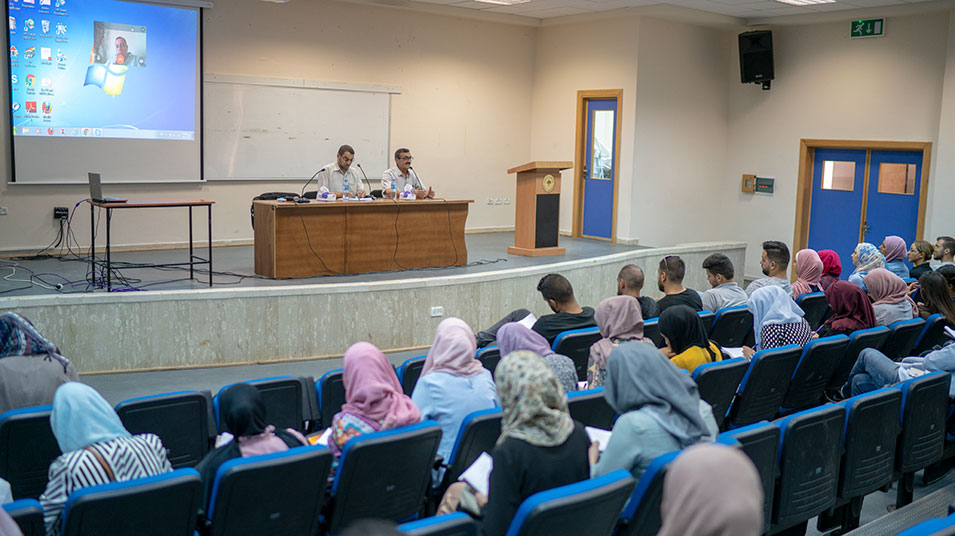Professors debate Donald Trump’s “ultimate deal,” define its effects on Palestine
The Ibrahim Abu Lughod Institute of International Studies at Birzeit University held a symposium discussing the effects of the proposed American “ultimate deal” for solving the “Israeli- Palestinian Conflict” on Palestinians on August 4, 2018. The symposium featured social sciences professor and activist Wissam Rafidi, and the professor of political science Ahmad Azem.
Rafidi started the lecture talking about the effects of the “ultimate deal” on the ground. “On the Palestinian level, we can see how the deal is implemented. Its features are revealed in the ongoing settlement expansion policy, the Jerusalem embassy decision, and the continuous violence against Gazans. On the Arab level, it is obvious that there are two alliances; the Saudi- American- Israeli alliance fighting against Iran and its foreign policy, versus the Iranian-Syrian alliance, that are standing against Zionism.”
To resist the “ultimate deal,” Rafidi emphasized that the immediate task ahead for Palestinians is to be unified, whether by ending the division between the Palestinian parties or deciding on one means for resisting the Israeli occupation ending U.S biases in favor of Israelis, or some combination of the above. “We either resist the occupation, or go into negotiations. We cannot continue to disagree on the means to fight the occupation. We need one concrete mean of resistance that all Palestinians agree on and work towards, in order hinder the negative implications of the ‘ultimate deal.’”
Calling for further research, Rafidi said that the current street movement, which has called for lifting the sanctions that are imposed against Gaza, will set out new options for the Palestinian Authority to consider.
While Rafidi believes that the deal exists and will affect the future of the Palestinian cause, Azem argues that the deal is an illusion created by the Arabs. “Most of the resources that have talked about the ‘ultimate deal’ are Arab news agencies. The term has not been used by any American or Israeli official,” Azem explained.
The roots of the term, according to Azem, goes back to 2016, when Trump promised the Israeli Prime Minister Benjamin Netanyahu after winning the elections to make a deal “for humanity’s sake,” hoping to solve the so-called “conflict” between Palestinians and Israelis. The term “deal” was mentioned again during Trump’s meeting with Egyptian President AbdelFatah Al Sisi in April 2017.








